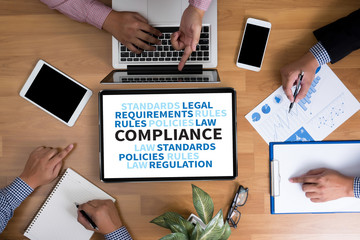To our Valued External Stakeholders,
This statement is to clarify the position of Safety Schemes in Procurement (SSIP) regarding the setting of fees for our member schemes. We understand that stakeholders may seek a standardised approach to pricing across all SSIP-recognised schemes, and we wish to explain the legal and practical reasons why this is not possible.
As the umbrella organisation for a diverse group of independent certification bodies, SSIP’s primary role is to ensure that all members assess their suppliers against a common set of health and safety standards—the SSIP Core Criteria. This mutual recognition framework is designed to reduce the duplication of assessments and lower the overall administrative burden and cost for suppliers.
However, it is crucial to understand that SSIP is unable to set or mandate fee structures for its member schemes. This is due to two fundamental reasons:
- Legal Requirements under Competition Law
- Prohibition of Price-Fixing: UK competition law, primarily governed by the Competition Act 1998, strictly prohibits any form of price-fixing or anti-competitive agreements between independent businesses. As each SSIP member scheme is a separate and competing commercial entity, any attempt by SSIP to set a uniform price or a minimum/maximum price for their services would be a direct violation of these laws. Such actions could lead to severe penalties, including substantial fines for the schemes and the disqualification of directors.
- Encouraging Market Competition: Competition law is designed to promote a healthy and competitive market, which ultimately benefits consumers and businesses through innovation, choice, and fair pricing. By allowing each member scheme to set its own fees independently, we ensure that they compete on the basis of price, service quality, and additional offerings. This competitive environment drives value for suppliers seeking certification.
- Practicalities of Diverse Operating Models
-
- Varying Services and Business Models: SSIP member schemes all adhere to the SSIP Core Criteria for the health and safety assessment and provide an identical core assessment however some schemes provide additional services, such as a wider range of pre-qualification questions (e.g., covering quality, environment, or modern slavery), online portals, training, and marketing opportunities. This means that individual schemes may have different operating models, cost bases, and service offerings as a result.
- Fee Reflects Service Offering: The fee charged by each scheme reflects the specific services they provide and their individual business costs. A scheme offering a basic health and safety assessment with a straightforward online process will have a different cost structure than a scheme that provides a comprehensive suite of supply chain management tools, dedicated account managers, and in-depth audits. Setting a single fee would be unfair and impractical, as it would not account for these differences in value and complexity.
In conclusion, our commitment is to provide a robust and transparent framework for mutual recognition, which in itself delivers significant savings and efficiencies for the industry. While we cannot dictate pricing, we can and do ensure that all our member schemes meet the same high standards of assessment, allowing suppliers and buyers to make informed choices based on the services and value that best fit their individual needs.
We will continue to actively engage with all our stakeholders to champion the principle of mutual recognition and preference for contractors only to have to undertake one SSIP assessment. This core mission is what drives our organisation, and we remain dedicated to promoting a single-assessment approach to reduce the financial and administrative burden on the supply chain.
We believe this approach fosters a dynamic and fair market, where the benefits of competition work in tandem with the essential goal of improving safety standards across the supply chain.
For further information on competition law, we encourage you to consult the guidance provided by the Competition and Markets Authority (CMA) on the UK government website.
Statement date: Aug 4, 2025





